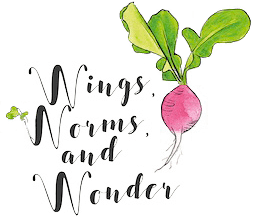Flowing with Black Women in Science!
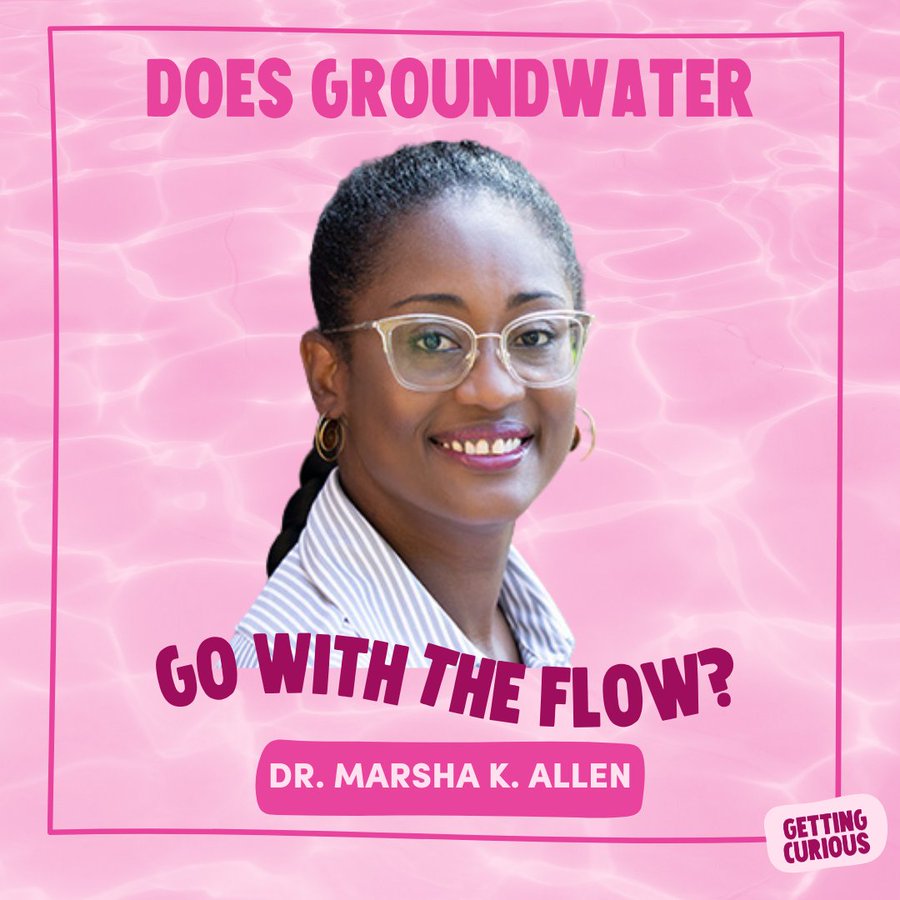
Tapping into the Flow
It's Black Heritage Month! So let's celebrate BIPOC Women in STE(A)M!
Recently I listened to a podcast with Dr. Marsha K. Allen (link below), a hydro geologist and Assistant Professor of Earth Sciences at Mount Holyoke College. I was blown away at how interesting groundwater can be!
I shouldn't be surprised, of course, because the more you learn about a topic the more you discover how interesting everything is when you make the time to examine it. Plus, the more you learn, the more you are reminded of how much you don't know - and how much wonder there is in the world to discover!
Back early in December I went on a tour of my little city's wastewater treatment plant and it was fascinating! Of course wastewater isn't groundwater, but it all is part of the Earth's water cycle.
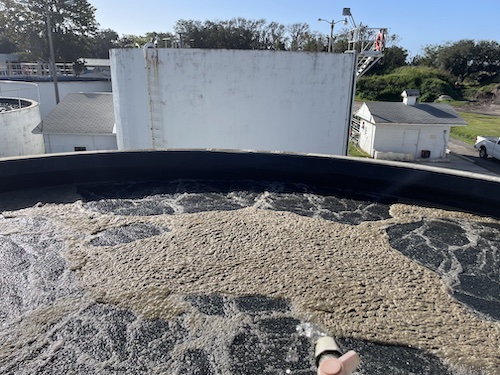
I highly recommend you take a tour of your city's facility. The municipal tours are free and so engaging. The environmental science knowledge and expertise (and enthusiasm) of the experts working in this important field is fantastic and so practically applicable.
I was a tag-a-long on a Montessori Homeschool field trip. I jumped on the opportunity to attend because my nephews went on this tour years ago when they were in elementary school and loved it (what kids don't love to talk about poop?)!
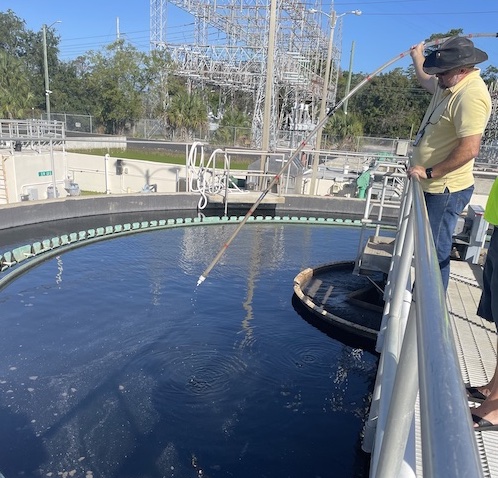
We're told "don't waste water", and we try our best. It's so easy forget about the water once it goes down the drain - but that is actually when its real journey begins! Following the water's course from our sink back into nature, and all that the trek entails, is something as citizens we all should understand.
And trust me, the tour isn't gross at all, and we even got to look in microscopes and learn how ecologically sustainable the whole process actually is! It even relies on tardigrades - so microscopically cute and helpful!
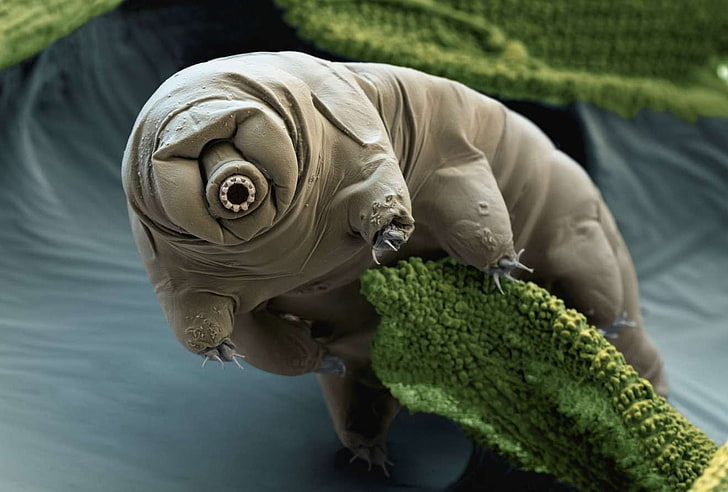
Where is the Water?
Let's work backwards from wastewater back to groundwater. Groundwater is that lovely freshwater that nurtures life on Earth.
There is a finite amount of freshwater on Earth - about 3% of the Earth's water is freshwater. Rain isn't actually "new" water. It is the same groundwater that the dinosaurs were drinking!
This fact always mesmerizing me, especially when I am swimming in the springs (that I wrote about last month, aka the actual ancient Floridan aquifer)!
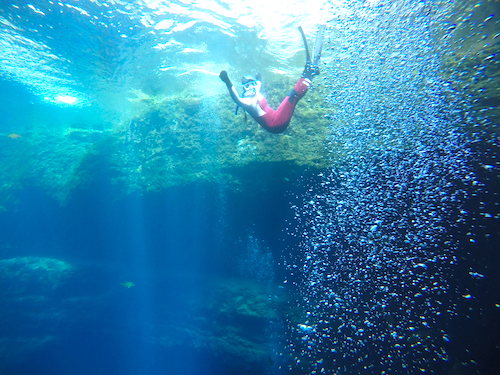
Earth's freshwater just keeps cycling and purifying through the evaporation cycle and the Earth's crust layer. (That is why wastewater treatment is so important!)
Dr. Marsha's work is so important, because as the consequences of climate change increase, freshwater is becoming scarce in many areas. Especially in parts of the world that have only a wet season and dry season, so tropical climates.
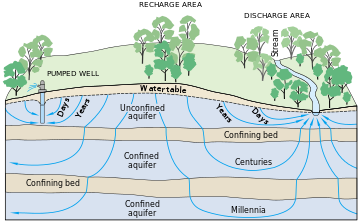
As extremes become more common, droughts will increase, as will floods. The water accessibility won't be balanced and easy to assimilate.
For example, in a torrential downpour onto very dry land much of the freshwater washes off quickly in a flash flood. It doesn't seep into the ground slowly like it does in a gentle rain onto averagely hydrated soil.
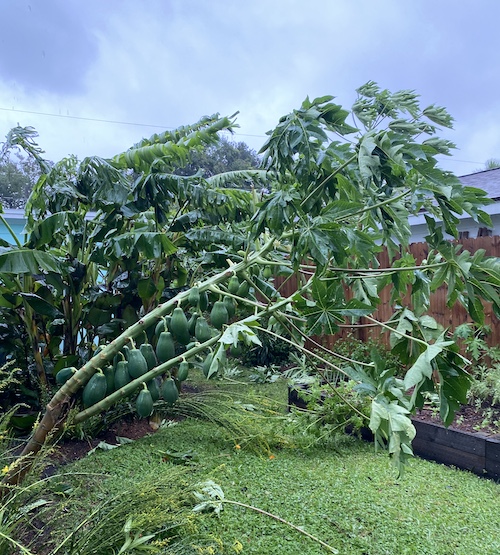
Dr. Marsha's work is examining how groundwater in tropical and/or arid climates can be accessed to support water needs during dry periods. About 30% of the Earth's freshwater is stored in the Earth as groundwater. That is a lot of untapped freshwater potential!
She conducts the majority of her research on the small island of Tobago, where she is from. She discovered that the majority of the island's groundwater is traveling underground and emerging out in the ocean - creating pockets of freshwater in the ocean!
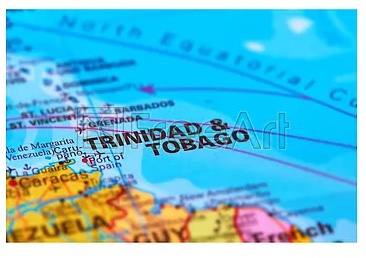
Dr. Marsha has also discovered how and where the water is flowing under Tobago, and how the geology of the island affects the groundwater and its accessibility - among many other much more scientific, practical, and brilliant things that I am not skilled enough to talk about, so you can listen to her tell you in the podcast!
When when groundwater becomes accessible for human consumption, it is very important we use, and re-use, it wisely - this is where that important understanding of wastewater treatment and recycled water use comes in! Full circle, full cycle!
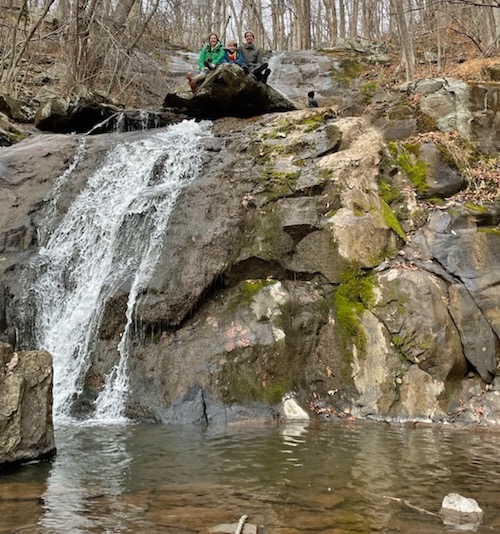
She works with local farmers and fisher-people to learn more about the nature and rain cycles that they have depended on for generations.
Among other things, Dr. Marsha combines that practical knowledge with her academic and scientific knowledge of geology, chemistry, hydrology, and engineering to piece together the fascinating puzzle of:
Where is the groundwater,
Where is it going,
How much of it is there,
How old is it, &
How can we safely and sustainably harness it for human consumption as rain becomes less dependable?
From Teaching STEM to Teaching STEAM:
Beyond Dr. Marsha's brilliance, her expertise in her field, her openness and enthusiasm to working with local tradespeople and respecting their lived wisdom, her curiosity & joyeux de vivre, and her encouraging and inclusive teaching style, it is her recent enthusiasm to embrace the arts as part of her teaching method that inspired a celebration of her and her work!
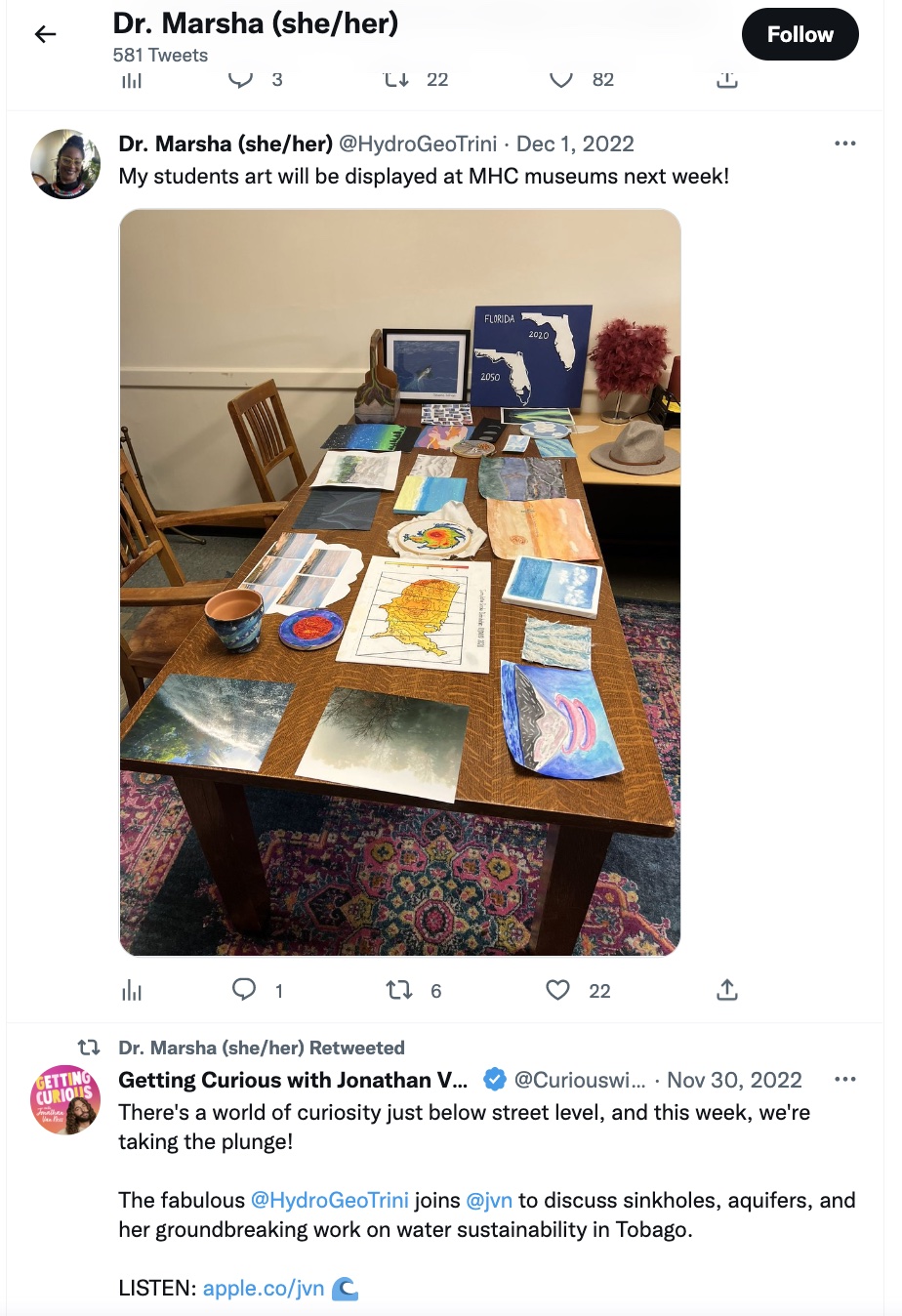
In the podcast she briefly spoke about how she has recently begun to have her students create art projects (visual art, poetry, ...) as a method to explore innovative ideas and solutions in the field of geology and hydrology!
This is taking STEM learning to STEAM learning! And from where I stand, is the future of really amazing science. Science and the arts both take discipline and creativity.
(*STEM - Science, Technology, Engineering, Mathematics.
STEM + A (Art) = STEAM!)

Many artists explore interdisciplinary themes in their work, especially environmental themes, so why aren't more scientists using art to explore their work?
Well if Dr. Marsha has any say in the matter - which she does - the new students of science are using art as a tool to get their creative brains working on scientific question finding and problem solving!

And for that I thank her and am infinitely inspired and indebted!
Dr. Marsha K. Allen, Thank you!
What is your relationship with women, Black students, and arts in the sciences?
Share in the comments below!
Share your science inspired art and art inspired science on Instagram #wingswormsandwonder ! I'd love to see!
Seeds to Sprout

Does Groundwater Go with the Flow?
Listen to the Getting Curious podcast with Dr. Marsha K. Allen, PhD all about hydrogeology and discover how interesting it, and her work, is!
Rocks, water, interesting people, science, nature, & art?
Sounds amazing!
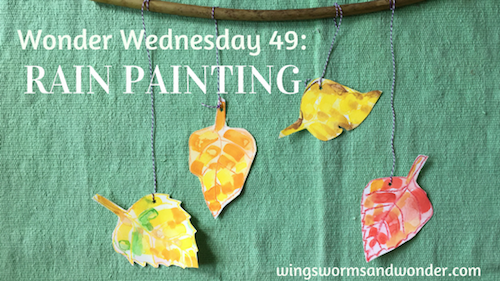
Rain Painting
Water in the form of rain can be a fun and spontaneous art medium! Explore some watery fun with this Wonder Wednesday 49 Rain Painting project! And you don't only have to paint fall themed leaves in this method, make any shape you like!
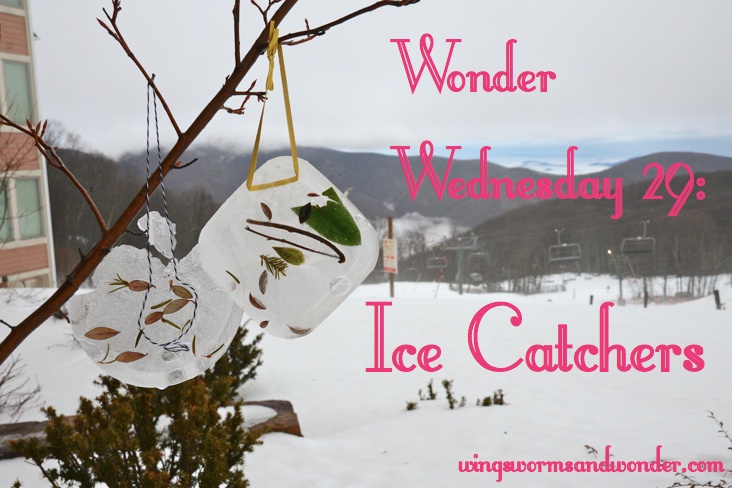
Evaoporation
Explore the evaporation portion of the water cycle with this Wonder Wednesday 122 project, From Sea to Salt! Evaporate all the fresh water into a cloud and make your own sea salt!
